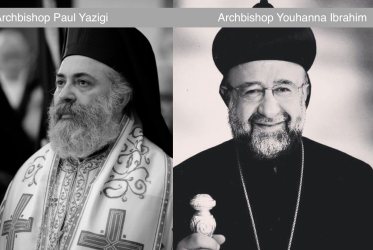Displaying 1 - 20 of 138
WCC renews call for release of archbishops of Aleppo
28 February 2022
Plantar árboles y trabajar por la paz en Palestina
27 January 2022
Planting trees and working for peace in Palestine
26 January 2022
WCC offers prayer during Japanese peace conference
11 March 2021
COVID-19 in conflict zones: “a crisis within another crisis”
27 November 2020
WCC organises event on “The Human Rights Situation in the Philippines”
18 September 2019
Dr Saïd Ailabouni: God is on the side of rejected, oppressed, occupied
12 September 2019







